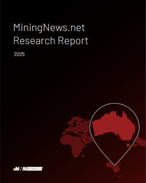This article is 1 year old. Images might not display.
The Yarwun Hydrogen Calcination Pilot Demonstration Program was approved after a A$32.1 million co-funding boost from the federal government's Australian Renewable Energy Agency (ARENA) and follows a $1.2 million feasibility study.
The program is aimed at demonstrating the viability of using hydrogen in the calcination process, where hydrated alumina is heated to temperatures of up to 1000 degrees Celsius.
It involves the construction of a first-of-its-kind hydrogen plant at the refinery and the retrofit of refinery processing equipment. If successful, the program could pave the way for the adoption of the technology at scale globally.
The project will consist of a 2.5MW on-site electrolyser to supply hydrogen and a retrofit of one of the refinery's calciners to operate with a hydrogen burner.
Rio Tinto Aluminium Pacific operations managing director Armando Torres said the pilot plant was an important step in testing whether hydrogen could replace natural gas in Queensland alumina refineries.
"At Rio Tinto we have put the energy transition at the heart of our business strategy, and this is one of the ways we're working towards decarbonising our operations," she said.
The trial is expected to produce the equivalent of about 6000 tonnes of alumina per year while reducing Yarwun's carbon dioxide emissions by about 3000t per year.
Converting the entire plant to green hydrogen could reduce emissions by 500,000t per year, which is the equivalent of taking about 109,000 internal combustion engine cars off the road.
Construction will start in 2024. The hydrogen plant and calciner are expected to be in operation by 2025.
Sumitomo will own and operate the electrolyser at Yarwun site and supply the hydrogen to Rio directly. The electrolyser will have a production capacity of more than 250t of hydrogen annually.
ARENA CEO Darren Miller said the world-first pilot looked to prove a promising technology for decarbonising Australia's of our most emissions-intensive industries.
"Having already backed an encouraging feasibility study, we're excited to be working with Rio Tinto and Sumitomo Corporation to build on that success and trial hydrogen calcination in the field," he said.
"If this pilot project is successful, it could be a game changer for Australian alumina production, paving the way for deployment across the industry, and underscoring the importance of low-cost green hydrogen to decarbonise our largest industrial emitters. ARENA will continue to support projects at this scale as we develop other larger programs, such as Hydrogen Headstart."
ARENA is also providing funding to Alcoa to investigate electric calcination and trial mechanical vapour recompression, two further technologies identified in its Alumina Decarbonisation Roadmap, published last year.
























